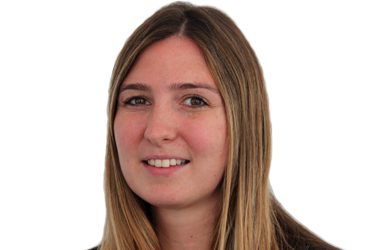On Wednesday Doug Lemov gave our inaugural Policy Exchange Education Lecture. His lecture, which you can now see on our site, was a masterclass of the art. Doug has an incredible knack of coming up with solutions to education problems that are so completely obvious and reassuringly simple that it feels not only that the problems we face in education are completely fixable, but also that it won’t take too much effort to do so.
The lecture, entitled “Where are all the superheroes?” was reminiscent of the powerful documentary “Waiting for Superman” in which Geoffrey Canada, founder of the Harlem Children’s Zone, remembers weeping as a child when he found out Superman didn’t exist, because it meant “no one was coming with enough power to save us”. Thankfully, what Geoffrey and now Doug argued was that although a charming man in colourful spandex was not going to glide down into our challenging schools and get all the kids into great universities, there are already much more suitably attired people in classrooms around the country doing exactly that. The only catch, as he explained, is that we often have no idea who or where they are.
So what did we learn – as teachers and as policymakers?
Know who your superheroes are – Doug gave the story of Zenaida Tan, who was found to be (on test score data released by the LA Times) the most effective teacher in LA. Yet people in her school – principal, colleagues, students – didn’t realise that. English schools are swimming in data, although as our assessments are different and data collated by institution rather than individual teacher, we can unfortunately only see which schools are superhero schools rather than identify the superhero teachers, and this means some of our Batmen and Catwomen are still undiscoverable except through anecdote or rumour. But even if we can’t easily identify our superhero teachers, we can at least learn from our superhero schools. There is no achievement gap, said Lemov, that some teacher hasn’t already crossed. We just need to learn to find them and find what they’ve done.
Learn from your mistakes – as was made so abundantly clear from the title of the lecture, we need to value our teachers but also acknowledge that no school is led by just one person, and the whole staff of a school makes that institution a success or failure. As part of this schools need to develop their staff and encourage openness around mistakes as part of the development process. If a child pretends they understand how to add fractions when they don’t, it becomes much harder to teach them. Equally, if a teacher hides their difficulties in teaching from other staff, they don’t have the chance to develop and become better.
Make sure teacher training covers the reality of schools – If we know that there is a culture of disrespect and disruption in our challenging schools, then new teachers need to be equipped to deal with that. Lemov is very clear that this is all about perfecting the basics. We need to teach our new teachers, he argued, how to get pupils to hand out paper quickly and efficiently, and how to come into the classroom professionally and start a lesson without disruption. Although this sounds low level, if students learn English every day, and handing out paper efficiently can save two minutes in each of these English lessons, and if a school has 185 teaching days in a year, that is over 6 hours more content time for teaching English every year, which is about an extra week’s worth of lessons or more.
The lecture ended with a powerful cri de coeur to grow the pie – to focus not just on how to allocate a fixed number of good teachers, but to look at how to expand the effectiveness of all teachers. Part of this is around the currently (rightly) very hot focus on teacher led research. Teachers are thought of in all kinds of ways, but rarely as intellectuals or as people who participate in developing the knowledge base of the profession. They get told. But no one trusts them to do the telling. To do so would be a fundamental shift in the profession. Policy should focus on seeking to find the best among teachers, and to ask those to help us guide the work all other teachers do from within. It was a suitably optimistic note on which to end and enthuse the large and passionate crowd.

